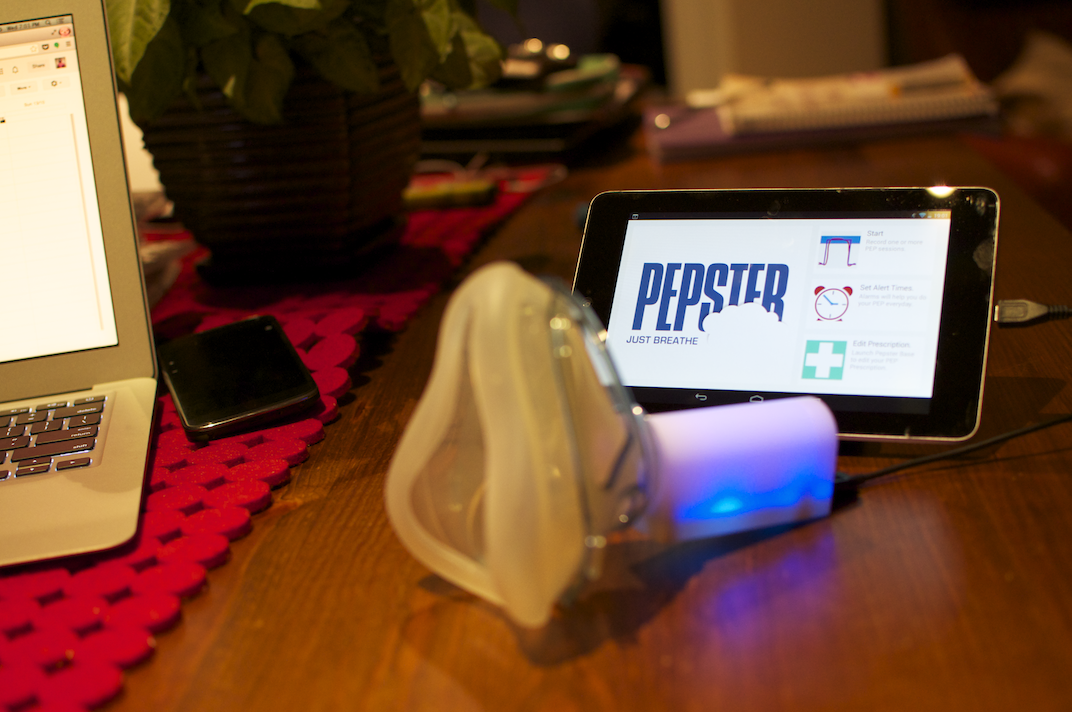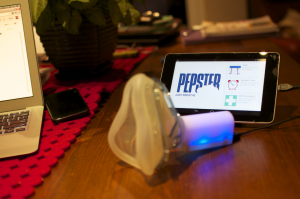New Student-Developed Cystic Fibrosis App Makes Breathing Therapy a Game

 A 23-year-old engineering student at the University of Queensland, in Australia, was granted the Young Innovator of the Year award for creating an app for children suffering from cystic fibrosis. Pepster is the app that works as a game in which children with respiratory problems due to the disease can perform breathing exercises in a fun way. The entrepreneur, Elliot Smith, received the award at the annual event dedicated to information and technology night in Melbourne, the iAwards.
A 23-year-old engineering student at the University of Queensland, in Australia, was granted the Young Innovator of the Year award for creating an app for children suffering from cystic fibrosis. Pepster is the app that works as a game in which children with respiratory problems due to the disease can perform breathing exercises in a fun way. The entrepreneur, Elliot Smith, received the award at the annual event dedicated to information and technology night in Melbourne, the iAwards.
Pepster, which was developed in collaboration with two other university students for Smith’s thesis project, was designed to help children manage cystic fibrosis. To play the game, children wear a face mask connected to a miniature computer and a Nexus 7 Google tablet. The idea is to transform breathing therapy into something fun, and therefore Smith created two video games in which patients use their breath to control the game. While one is a version of Flappy Bird, the other is a galactic game in which children drive a spaceship with their breath.
“This incentives them to do their physiotherapy more regularly and also allows us to record the information and send it back to the doctors. I thought I could sit there and write Flappy Bird 2 or I could devote myself to something like this and I thought this was the best use of my skills and the resources I have at hand,” explained Elliott Smith, who was granted $10,000 for the Young Innovator of the Year award, as well as $5000 for the best mobile application award, to Ben Grubb, from the Sydney Morning Herald.
[adrotate group=”1″]
The program also registers patients’ physical levels for physicians to control if the therapy is being effective and whether adjustments are necessary, which Smith believes may be used to understand the disease and therapy progression. According to the entrepreneur, the app is a digital version of medical devices — the difference is that it is associated with a mobile device. The device is meant for children between four and 14 years old, and Elliot Smith explained that parents have been reaching out to him to express the success of the app, since “the feedback is that their children are genuinely enjoying the experience and it’s stopped being almost a chore.”
The next step is to assess the effectiveness of the device in a clinical trial, which is already being started at Mater Children’s Hospital in Brisbane, including 30 patients. When the trial is finished, Smith is going to complete the prototype of Pepster in order to seek approval from Australia’s Therapeutic Goods Association and the United States Food and Drug Administration and bring it to market.
“If it works it would definitely improve the quality of life of patients, improve the lung function in the short-term and if these could be sustained then it would improve life expectancy,” a spokesman at the Mater Children’s Hospital said. “Patients like the device and there is a great amount of good will to help the investigators improve the device.”
[adrotate banner=”15″]







